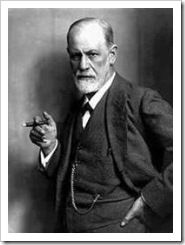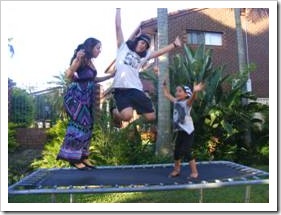 Last year, my 21-year-old daughter Eden started studying Psychology. She said she wanted to study Psychology since she was 10 years old. Having a mother and an aunt in Special Education, another aunt in psychology and Social Work and being inspired by our amazing psychologist friend probably all contributed to her desires to learn about the human mind.
Last year, my 21-year-old daughter Eden started studying Psychology. She said she wanted to study Psychology since she was 10 years old. Having a mother and an aunt in Special Education, another aunt in psychology and Social Work and being inspired by our amazing psychologist friend probably all contributed to her desires to learn about the human mind.
Whenever I talk about Eden and her desire to study Psychology (by the way, at this stage, she still just wants to study and being a psychologist is not on her radar yet), it takes me back to a research project I did during my own studies, titled “Why do people choose to study Special Education?”
Over the course of a year, I checked a big institute of career counseling. I reviewed their programs, their selection criteria, surveyed over 400 education students and interviewed psychologists, social workers, Special Education teachers and education experts. I checked the curriculum of 5 teaching institutes and compared them to find the sources of attraction to a specific program.
Besides finding out why people chose Special Education, I also discovered some interesting relationships between teachers, Special Education teachers, social workers and psychologists:
- Teachers, special education teachers, social workers and psychologists have similar character traits. So much so that career counselors suggest them to people with those traits as a group of possible professions.
- There is a difference in these professions’ attitude to outcomes and progress. Teachers want to see immediate progress. They teach something and the students should know it. Special Education teachers can deal with slower progress and outcomes that take a bit longer to arrive. Social workers can work for months to see small changes and accept low performance as a fact of life. Psychologists can work with someone for six months and then see progress in a word their patient says.
Professional patience scale
Psychologist Social Workers Special Educators Teachers
![]()
4 parenting styles
Parenting styles fit on a similar scale. They differ in their attitude towards progress and ability to recognize change.
“Teacher” parenting style
 This type of parent expects change to happen quickly. When it does not happen, they immediately pass the kids on to someone else who may be able to explain why they did not “get it” straight away and “fix” them. A “teacher” parent is convinced that things need to happen simple because they have just asked, ordered, threatened, explained, etc.
This type of parent expects change to happen quickly. When it does not happen, they immediately pass the kids on to someone else who may be able to explain why they did not “get it” straight away and “fix” them. A “teacher” parent is convinced that things need to happen simple because they have just asked, ordered, threatened, explained, etc.
A common “teacher” parent expression is “I’ve already told you”.
In this style, there is less creativity and more fixation on the “norm”. This style is good for kids who are easy, “normal” and confident (not that I know any kid who is like this in every area, but maybe this is because I am somewhere else on this scale).
“Special Education” parenting style
A “special education” parent does not expect immediate change. They understand that every change is a process and always measure progress on a scale. “Special education” parents say things 5, 6, even 10 times before they get frustrated.
A common expression of this parenting style is “OK, let me say this again”.
In this style there is more creativity and the “normal” range of performance is wider. “Special education” parenting is a great style for the easy kids, as well as for kids who are, well, special. Have you noticed how special education teachers often use the word “special” to say “difficult” or “weak”? I felt transparent when I wrote that, but creative kids are also special and they need more space, so this style is better for them too.
“Social Worker” parenting style
A “social worker” parent works on long-term projects and can wait for a long time to see change. Such parents see themselves as facilitators of change and will try many ways to help a child do better. “Social workers” have a better understanding of the psychology of change and learning and will cover more aspects of it before giving up.
A common expression of this parenting style is “Let’s do this a different way”.
“Social worker” parents will draw their strength from many disciplines and will be more creative in their approach. This will not follow a “norm” in their parenting style and pay closer attention to the child’s environment and external influences. This style is powerful and very good for easy kids, special kids and challenging ones.
“Psychologist” parenting style
 A “psychologist” parent has lots of patience (a great virtue in parenting) and is very knowledgeable about the human mind, change and learning. Such parents recognize parenting as lifetime journey and can detect small changes over years.
A “psychologist” parent has lots of patience (a great virtue in parenting) and is very knowledgeable about the human mind, change and learning. Such parents recognize parenting as lifetime journey and can detect small changes over years.
A common expression of this parenting style is “Let’s give it more time, shall we? We’ll come back to it when you’re ready”.
“Psychologist” parents collect many techniques, add them to their parenting tool kit and are very creative in their approach to parenting. Since they can wait, they have an emotional time buffer to try different things and give their kids the space and time to develop. They do not follow a “norm” nor do they expect their kids to follow it.
This style is perfect for easy kids, special kids, challenging kids and “God, help us” kids.
Parenting style coping scale
Psycologist Social Workers Special Educators Teachers
![]()
“God, help us” Challenging kid Special kid Easy kid
Of course, every parent wants to have easy kids, but life throws all kinds of problems at them and sometimes, they stop being easy. “Psychologist” parents can help their kids in all circumstances, so they have an advantage. “Social Workers” can handle most kids, but when things become extreme, they still need to refer to a psychologist, and you can work out the other parenting styles.
 I am happy to report that Eden, although she is only 21 years old, has always had patience and the ability to recognize small changes. I always say to her she is studying to get formal acknowledgement for what she already knows naturally. Can you imagine what kind of a mother she will be?
I am happy to report that Eden, although she is only 21 years old, has always had patience and the ability to recognize small changes. I always say to her she is studying to get formal acknowledgement for what she already knows naturally. Can you imagine what kind of a mother she will be?
When you hear parents speak about their kids and their parenting adventure, you can tell their parenting style. Listen to your friends or think back to conversations you have had with them about kids and you will see.
What is your parenting style?
Happy parenting,
Ronit











